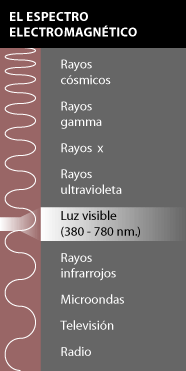WEIGHT LOSS FADS AND FALLACIES LOOKING FOR A FAST
OVERWEIGHT OBESITY AND LACK OF PHYSICAL ACTIVITYVweightlifting Queenslandv July 2002 The Official Journal of
Vweightlifting Queenslandv nov 2002 the Official Journal of
1 MATERNAL WEIGHT CHANGE BEFORE PREGNANCY IN RELATION WITH
1 POSITION EVALUATOR DATE CANDIDATE QUESTIONS CRITERIA SOUGHT WEIGHT
1724 WEIGHTEDAVERAGE METHOD ASSIGNING COSTS 1 & 2 SOLUTION
Weight Loss: Fads and Fallacies
Weight Loss: Fads and Fallacies
Looking for a fast and easy miracle that will help you shed those unwanted pounds? There are hundreds of products, potions and plans that promise to deliver just that. The problem is, if any of them actually worked for long-term weight control, then overweight and obesity would not be a major public health concern.
There is a lot of money to be made in weight loss remedies, and John Q. Public is ready and willing to buy. In fact, Americans spend about 35 billion dollars a year on weight loss products and services. Some of the remedies are a harmless waste of money, but others are downright dangerous. This article will describe some of the fad diets and products marketed for weight loss that are popular today, and how to judge if a weight loss plan is safe and effective.
What Is a Fad?
A fad is something that is popular for a short period of time but then loses its appeal. Fad diets become popular because they often have a new gimmick that gives people who have been fighting the battle of the bulge new hope. These diets often result in quick weight loss, which is why they become popular, but do not promote the permanent healthy lifestyle changes that are needed to maintain weight loss, which is why they lose appeal.
Quick Is Good, Right?
People who are trying to lose weight naturally want to see fast results. That’s human nature. Quick weight loss can actually backfire, though. When a person loses weight rapidly, a lot of lean tissue is lost along with fat tissue. The loss of lean tissue causes a reduction in the basal metabolic rate, or the rate at which calories are burned at rest. So after the “diet” is over, the person needs much fewer calories to maintain their weight than before the diet. This increases the likelihood of regaining the weight – and then some. In order to prevent loss of lean tissue and a reduced metabolic rate, weight loss should be no more than one to two pounds a week.
Low Carbohydrate Diets
Right now, low carbohydrate diets such as Dr. Atkin’s diet are popular for weight loss. People who were around in the 1970s may remember the first time the Atkin’s diet became popular. Many people lost weight, which resulted in the diet’s popularity, but then many gained it back, and the diet’s popularity faded. Dr. Atkin’s diet has recently made a resurgence, with many reports of dramatic weight loss.
A low carbohydrate diet, especially if it has less than 100 grams of carbohydrate, will cause a large water weight loss the first week. The body stores carbohydrate as glycogen, and glycogen holds water. So when you restrict your carbohydrate intake, you lose not only glycogen, but also water. That means that when you start eating carbohydrates again, you will experience an immediate weight gain of about five to seven pounds as your glycogen stores return.
Studies that have been done to date generally indicate that the main determinant of weight loss is the number of calories consumed, not the proportion of carbohydrates and protein. In addition, some low carbohydrate diets are high in saturated fat, which is not healthy, especially if followed long-term. A high protein intake can also cause calcium loss from the bones if calcium intake is low and stress the kidneys in those at risk for kidney disease. People on low carbohydrate diets can lose weight –if they consume fewer calories than they burn, but a low carbohydrate diet may not be realistic (or safe) for the rest of their lives.
Weight Loss Products
Stores have entire shelves devoted to weight loss products. The products will “work,” as long as the individual consumes fewer calories than they burn. One such product requires that you take their product three hours before you go to bed, and you are not allowed to eat anything after taking the product. People lose weight with this product because they stop snacking at night.
Other weight loss supplements contain ingredients like ephedra, or Ma Huang, which may increase the metabolic rate. Ephedra, however, has been associated with irregular heart beat and some deaths. You should always consult a physician before taking any weight loss supplement.
Why Diets Don’t Work
When people go “on” a diet, that implies that one day they will go “off” the diet, and often back to the old eating habits that led to the excess weight in the first place. And, when diets are overly restrictive, “forbidden” foods often become even more desirable. A cycle of dieting can ensue where a person starts a strict diet, gives in to cravings and “blows” the diet, then eats large quantities of the forbidden foods because they won’t be able to eat them when they start the diet over. They start the diet again, only to “blow it” again, binge… and many times the person actually starts gaining weight with the attempt at dieting.
Again, there is no quick and easy solution to permanent weight loss. No product, device or magic cure has been proven to cure obesity. A total lifestyle change, including healthy eating habits and increased activity that leads to taking in fewer calories than are burned is necessary for weight loss. And the new lifestyle has to be maintained in order to keep the weight off.
And remember, when it comes to weight loss, one size does not fit all. There is more than one healthy way to eat, and each person needs to find a way to eat healthy that is the right fit for their individual needs.
How to Recognize a Fad Diet
So how do you know if a weight loss plan is sound? Here are some tips:
1. A sound weight loss plan incorporates both good nutrition and exercise.
2. A sound weight loss plan does not advocate an overly restrictive diet. Less than 1200 calories a day is not recommended.
3. A sound weight loss plan has a food plan that offers variety, moderation, and balance. No one food group is excluded or recommended in excessive amounts.
4. A sound weight loss program incorporates healthy eating behaviors that can be followed for a lifetime. There is no “going on” or “going off” the diet.
Here are some signs that a weight loss plan is a fad:
1. Promotes quick weight loss.
2. Limits food choices.
3. Promotes food rituals, such as food combining.
4. Claims to be fast, easy and work for everyone.
5. Requires purchasing expensive supplements.
6. Does not promote permanent change.
7. Does not include exercise or activity.
Summary
If you have questions about a weight loss plan, ask a healthcare professional. Changing lifestyle habits is not easy, and you may need support. The good news is that even a small weight loss of ten to fifteen pounds can result in significant improvements in health. And when it comes to special weight loss product, remember, “Let the buyer beware”!
20042006 POPULATION WEIGHTED EXPOSURE TO ANNUAL PM25 ABOVE THE
8 SPECIAL CARE FOR PRETERM AND LOW BIRTH WEIGHT
ADDING WEANING WEIGHT TO CALVES SOURCE JOHN JOHNS WITH
Tags: fallacies looking, fallacies, looking, weight
- IZVODITELJ AKTIVNOSTI JE FIZIČKA ILI PRAVNA OSOBA STRUČNJAK I
- INTERVENCION DE LA SEÑORA MINISTRA DE RELACIONES EXTERIORES COMERCIO
- REQUISITOS PARA VISAS DE “INVITO” (INVITACION) SE REQUIEREN 1
- CYRIL REBETEZ – MIRWEIS SANGIN PROF CH DEPOVER STAF
- GET FILECUSERS13133041DESKTOPGAIT STUDY DATA SPSSGAITWITHGSVARIABLESTHISFILESAMSAV DATASET NAME DATASET1 WINDOWFRONT
- DEPARTAMENTO DEPARTAMENTO DEBIDO A LA SITUACIÓN ACTUAL Y PARA
- AUDI NUEVO PROVEEDOR DEL COMITÉ OLÍMPICO INTERNACIONAL AUDI
- „J” JELŰ BETÉTLAP …… ADÓÉVRŐL ……………………… VÁROSKÖZSÉG ILLETÉKESSÉGI
- GTBTN PÁGINA 0 ORGANIZACIÓN MUNDIAL DEL COMERCIO GTBTNCOL63 19
- FONDO CONCURSABLE PARA LA PROMOCIÓN DE LOS DERECHOS DE
- TC ADNAN MENDERES ÜNİVERSİTESİ GENEL SEKRETERLİK ARŞİV MÜDÜRLÜĞÜ 2011
- MİLLİ EĞİTİME BAĞLI OKULLARDA ANKET VE ARAŞTIRMA YAPACAK ÖĞRENCİLERİN
- RASPORED JAVNOG PREVOZA NA RELACIJI OKOLINA BANJE ANJANO (POZULI)
- 2 TAXI AND PRIVATE HIRE CAR BOOKING OFFICE LICENCE
- SMTGSCOLLEGENAACB++VIDYANAGARJAGGAYYAPET KRISHNA DISTANDHRA PRADESH ANNUAL QUALITY ASSURANCE REPORT 201617
- B ANKETXE BIDEZ HELBIDERATZEA DOMICILIACIÓN BANCARIA BEHEAN SINATZEN
- İLKELER VE AÇIKLAMALAR BAŞVURU ÖN KOŞULU 1 BAŞVURU YAPACAK
- 1 FRODO NAKOLE 8B NOČNÍK VS 2004 R&H
- İNTERNET SİTESİ SÖZLEŞMESİ İŞ BAŞLANGIÇ TARİHİ 1 İŞİ YAPACAK
- XIX CONGRESO INTERAMERICANO DE TURISMO “TURISMO UN DESAFÍO FRENTE
- SENTENCE INDICATION AND SPECIFIED SENTENCE DISCOUNTS FINAL REPORT ●
- RESUMEN EL SIGUIENTE ARTÍCULO TRATA DE LAS CONSECUENCIAS LABORALES
- 201GADA LATVIJAS REPUBLIKAS UZŅĒMUMU REĢISTRAM PIETEIKUMS UZŅĒMUMU REĢISTRA
- EVENTS RISK ASSESSMENT SECTION 1 EVENT SUMMARY
- İLK KEZ PROJE YAPACAK ARAŞTIRMACILARA ÖZEL DESTEK
- UNIVERSIDAD PABLO DE OLAVIDE RETROIRRETROACTIVIDAD DE LA NORMA PROCESAL
- REMOLACHAS ASADAS USE LAS REMOLACHAS SIN PELAR TODO MENOS
- GRUPO SCALA 2712011 LAS COMIDAS DE JESÚS U COMUNIÓN
- SAMPLE LETTER – NOTICE OF INACTIVE CLAIM (ON AGENCY
- TRIBUNAL DE CALIFICACIÓN TFGTFM VALORACIÓN DE COMPETENCIAS ADQUIRIDAS ESCALA
 XIII JORNADAS DE AVANCES EN TRASTORNOS ALIMENTARIOS HOSPITAL UNIVERSITARIO
XIII JORNADAS DE AVANCES EN TRASTORNOS ALIMENTARIOS HOSPITAL UNIVERSITARIO PROCESAMIENTO DE SEÑALES TAREA 1 JORGE ALBERTO SESEÑA OSORIO
PROCESAMIENTO DE SEÑALES TAREA 1 JORGE ALBERTO SESEÑA OSORIO THE VOWEL SONG BY DR JEAN A MAKES
THE VOWEL SONG BY DR JEAN A MAKES(ŪKIO SUBJEKTO (JURIDINIO ASMENS) PAVADINIMAS IR TEISINĖ FORMA
 FREEFORM 12 KONUT EDİMİNE İLİŞKİN LEASİNG SÖZLEŞMESİ MADDE 1
FREEFORM 12 KONUT EDİMİNE İLİŞKİN LEASİNG SÖZLEŞMESİ MADDE 1 NO TENEMOS QUE TENER VERGÜENZA POR LA CALLE LOS
NO TENEMOS QUE TENER VERGÜENZA POR LA CALLE LOS GRAN INSTALACIÓN DE INVESTIGACIÓN EN FÍSICA MÉDICA GRAN INSTALACIÓN
GRAN INSTALACIÓN DE INVESTIGACIÓN EN FÍSICA MÉDICA GRAN INSTALACIÓNMEMORIA CONSTRUCTIVA Y DESCRIPTIVA REACONDICIONAMIENTO DEL ESPACIO PUBLICO UBICADO
 PROGRAMME DE FORMATION FORMATION DE BASE À L’ÉDUCATION THÉRAPEUTIQUE
PROGRAMME DE FORMATION FORMATION DE BASE À L’ÉDUCATION THÉRAPEUTIQUE HEADLINES EDUCATION FOR ALL WITH LOVE MEDIA BANGKOK POST
HEADLINES EDUCATION FOR ALL WITH LOVE MEDIA BANGKOK POST PLIEGO DE CLAUSULAS JURÍDICAS – PROCEDIMIENTO ABIERTO SIMPLIFICADO ABREVIADO
PLIEGO DE CLAUSULAS JURÍDICAS – PROCEDIMIENTO ABIERTO SIMPLIFICADO ABREVIADOTHOMPSON PUBLIC SCHOOLS EMPLOYMENT AGREEMENT DIRECTOR OF FINANCE THIS
 BAŞKENT ÜNİVERSİTESİ MÜHENDİSLİK FAKÜLTESİ ELEKTRİKELEKTRONİK MÜHENDİSLİĞİ BÖLÜMÜ STAJ KILAVUZU
BAŞKENT ÜNİVERSİTESİ MÜHENDİSLİK FAKÜLTESİ ELEKTRİKELEKTRONİK MÜHENDİSLİĞİ BÖLÜMÜ STAJ KILAVUZUALLEGATO 3) DA INSERIRE NEL PLICO N° 1 “
EMBERI ERŐFORRÁSOK AZ ADATSZOLGÁLTATÁS A 762004 (VIII 19) ESZCSM
 P PROC LNSTN CIV ENGRS GEOTECH ENGNG 1996 119
P PROC LNSTN CIV ENGRS GEOTECH ENGNG 1996 119 UNITED STSTE NATIONS SECRETARIAT DISTR GENERAL STSGAC10C3200141 10 SEPTEMBER
UNITED STSTE NATIONS SECRETARIAT DISTR GENERAL STSGAC10C3200141 10 SEPTEMBERFORM A PROGRAMME ON SOURCE SEPARATION OF DOMESTIC WASTE
RATIONALE FACT SHEET DRAFT NATIONAL POLLUTANT DISCHARGE ELIMINATION
PAWEŁ KLINT (UNIWERSYTET WROCŁAWSKI) PRZYJEMSCY Z PRZYJMY – WIELKOPOLSKA